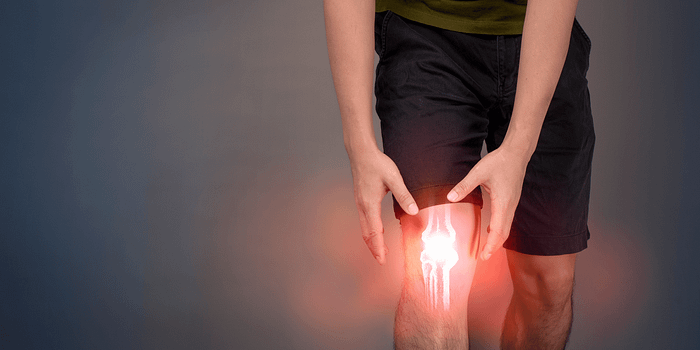Ultrasound-Guided Cortisone and Hyaluronic Acid Injections for Knee Osteoarthritis
Knee osteoarthritis is a prevalent condition that affects millions of people worldwide. It results from the gradual breakdown of cartilage within the knee joint, leading to pain, stiffness, and reduced mobility. At Alton Pain Clinic, we specialise in advanced, minimally invasive treatments such as ultrasound-guided cortisone and hyaluronic acid injections. These treatments aim to alleviate symptoms and improve joint function effectively. This detailed blog provides an in-depth exploration of knee osteoarthritis, including its anatomy, pathology, risk factors, and the roles of cortisone and hyaluronic acid injections.

Introduction to Knee Osteoarthritis
Knee osteoarthritis (OA) is a degenerative joint condition characterised by the gradual deterioration of articular cartilage within the knee. This wear-and-tear condition often develops due to ageing, repetitive joint stress, or injury. It can significantly impact daily activities, causing discomfort and reducing quality of life.
Anatomy of the Knee Joint
The knee is one of the largest and most complex joints in the body, comprising bones, cartilage, ligaments, and synovial fluid. Key components include:
- Bones:
- Femur (thighbone): The upper component of the knee joint.
- Tibia (shinbone): The lower component.
- Patella (kneecap): Protects the front of the joint.
2. Articular Cartilage: A smooth, elastic tissue covering the ends of bones, facilitating frictionless movement.
3. Menisci: Two crescent-shaped cartilage structures that cushion and stabilise the joint.
4. Ligaments:
- Collateral Ligaments: Provide side-to-side stability.
- Cruciate Ligaments: Control forward and backward motion.
- Synovial Fluid: A lubricating liquid within the joint capsule, reducing friction and nourishing cartilage.
Pathology of Knee Osteoarthritis
The pathology of knee osteoarthritis involves the progressive breakdown of cartilage and other joint structures. Key features include:
- Cartilage Degeneration: Loss of cartilage leads to increased friction and joint wear.
- Bone Changes: Formation of osteophytes (bone spurs) and subchondral bone sclerosis.
- Synovial Inflammation: Synovitis, or inflammation of the synovial membrane, contributes to pain and swelling.
- Joint Space Narrowing: Visible on imaging studies, indicating cartilage loss.
Symptoms of Knee Osteoarthritis
Common symptoms of knee osteoarthritis include:
- Pain: Worsens with activity and improves with rest.
- Stiffness: Notable after periods of inactivity, such as in the morning.
- Swelling: Due to synovial inflammation or fluid accumulation.
- Crepitus: A grinding or popping sensation during joint movement.
- Reduced Mobility: Difficulty in bending, straightening, or weight-bearing.
Risk Factors for Knee Osteoarthritis
Several factors increase the likelihood of developing knee osteoarthritis:
- Age: Risk rises with advancing age.
- Gender: Women are more commonly affected after menopause.
- Obesity: Excess weight increases joint load and accelerates cartilage wear.
- Injuries: Previous knee trauma or surgery.
- Repetitive Stress: Occupational or athletic activities involving frequent knee use.
- Genetics: Family history of osteoarthritis.
Diagnosis of Knee Osteoarthritis
Accurate diagnosis involves a combination of clinical assessment and imaging studies:
- Medical History: Evaluating symptoms, lifestyle, and previous injuries.
- Physical Examination: Assessing joint tenderness, range of motion, and crepitus.
- Imaging:
- X-rays: Identify joint space narrowing, osteophytes, and sclerosis.
- MRI: Provides detailed images of soft tissues and cartilage.
Management of Knee Osteoarthritis
Management strategies for knee osteoarthritis focus on symptom relief and improving joint function:
- Lifestyle Modifications:
- Weight loss to reduce joint load.
- Activity adjustments to minimise strain.
2. Medications:
- Pain relievers (e.g., paracetamol).
- Non-steroidal anti-inflammatory drugs (NSAIDs).
3. Injection Therapies:
- Cortisone Injections: Target inflammation and pain.
- Hyaluronic Acid Injections: Enhance lubrication and joint mobility.
4. Surgical Options: Reserved for advanced cases, such as total knee replacement.
Role of Cortisone and Hyaluronic Acid Injections
At Alton Pain Clinic, we utilise ultrasound-guided techniques to deliver cortisone and hyaluronic acid injections with precision and safety.
Benefits of Ultrasound Guidance
Ultrasound guidance ensures accurate needle placement and maximises therapeutic effectiveness:
- Visualisation of Joint Structures: Enables precise targeting of inflamed areas.
- Real-Time Feedback: Minimises risks to adjacent tissues.
- Patient Comfort: Ensures a minimally invasive and efficient procedure.
Mechanism of Action of Cortisone
Cortisone is a corticosteroid that reduces inflammation and pain in the affected joint. Its actions include:
- Anti-Inflammatory Effects: Suppresses the release of pro-inflammatory cytokines.
- Pain Relief: Decreases swelling and nerve irritation.
- Restoration of Function: Enables improved movement and activity levels.
Mechanism of Action of Hyaluronic Acid
Hyaluronic acid is a natural component of synovial fluid. Its therapeutic effects include:
- Joint Lubrication: Reduces friction between cartilage surfaces.
- Shock Absorption: Enhances the knee’s ability to bear weight and absorb impact.
- Anti-Inflammatory Effects: Inhibits inflammatory mediators within the joint.
- Chondroprotection: Protects cartilage from further degeneration.
Why Choose Alton Pain Clinic?
At Alton Pain Clinic, we are committed to providing cutting-edge care for knee osteoarthritis. Our approach includes:
- Experienced Specialists: Expertise in pain management and interventional techniques.
- State-of-the-Art Equipment: Advanced ultrasound technology for precision and safety.
- Personalised Care: Tailored treatment plans to meet individual needs and goals.
Conclusion
Knee osteoarthritis can be a challenging condition, but innovative treatments like ultrasound-guided cortisone and hyaluronic acid injections offer promising options for managing symptoms. At Alton Pain Clinic, we prioritise precision, safety, and patient-centred care. If knee pain is affecting your quality of life, our team is here to support you with effective and minimally invasive solutions. Contact us today to explore your options.

Comments
Post a Comment